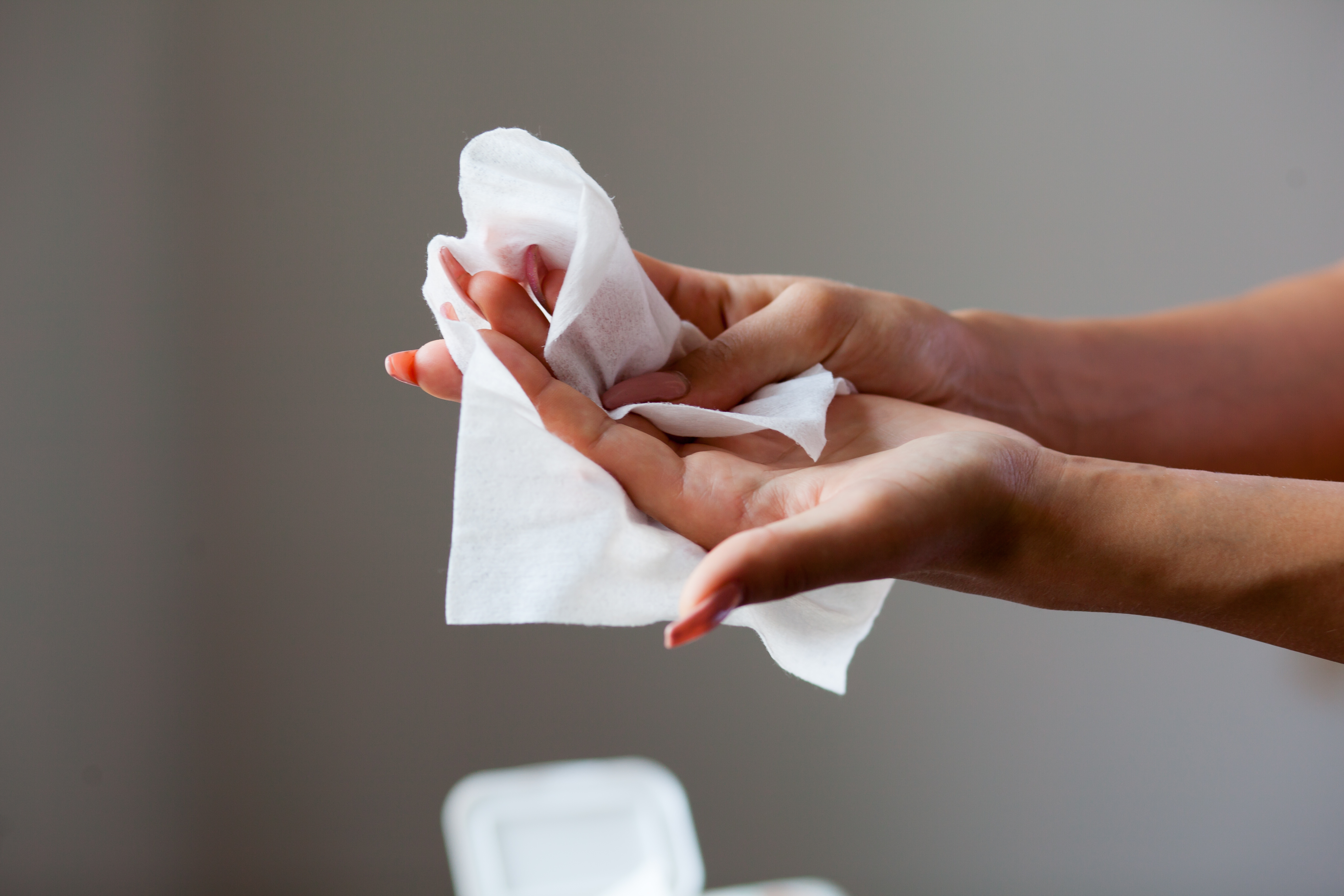Wet wipes in the sewerage system a problem that starts at home
Published on 16 August 2023

MidCoast Council is calling on residents to stop flushing wet wipes down the toilet, as the nondegradable sanitary products continue to cause problems in the sewerage system.
Despite increased messaging about the issues they cause over recent years, Council resources are regularly being diverted towards clearing up blockages caused by wet wipes.
Wet wipes have also been behind two recent sewer surcharges in the region. The first resulted in sewage seeping into a section of the Black Head Lagoon. The second led to the lengthy closure of a park and children’s playground in Taree.
Both events posed major health and environmental risks and required costly clean-ups to ensure the sites were safe to the public again.
Council’s Executive Manager of Water and Systems, Marnie Coates, said while no one ever intended to cause these issues, it was ultimately a problem that originated in the home.
“Wet wipes in the sewerage system are a direct result of people flushing them down the toilet,” said Ms Coates.
“It doesn’t help that many of these products are misleadingly advertised as ‘flushable’ when they’re not, but we’re out to educate people about this issue and change their behaviour when it comes to disposing of wet wipes.
“The best advice is this: if you use wet wipes in or around your bathroom, put a bin in there so you can safely dispose of them when you’re done. It’s an issue that’s costing us hundreds of thousands of ratepayer dollars every year, but if everyone followed this simple tip, the problem would quickly disappear.”
Ms Coates said wet wipes weren’t just showing up in Council’s sewerage network, but from rural properties with on-site sewerage systems as well.
“We’ve noticed an increase in the amount of wet wipes that are being taken to our sewage treatment plants by liquid waste transporters,” she said.
‘These transporters are responsible for pumping out on-site sewerage systems and disposing of the liquid waste at our plants. When the liquid waste is contaminated with wet wipes, we have to remove them and dispose of them at one of our waste disposal centres. That’s not only gross, it adds additional costs to what we’re already spending on this issue.
“And it’s not the transporters’ fault, it again comes back to people flushing wet wipes down their toilets.”
Ms Coates said it was always best to follow the 3Ps rule – the only things that should be flushed down the toilet are pee, poo and toilet paper.
For more information on what can and can’t be flushed down the toilet or put down the drain, visit www.midcoast.nsw.gov.au/wipesstoppipes